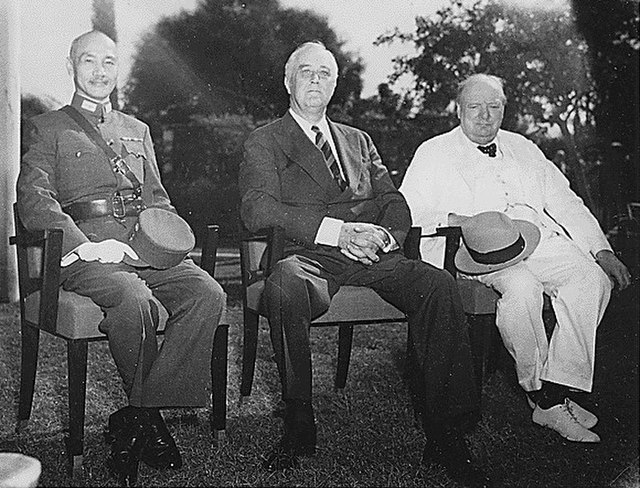The "Four Policemen" was a postwar council with the Big Four that US President Franklin Roosevelt proposed as a guarantor of world peace. Their members were called the Four Powers during World War II and were the four major Allies of World War II: the United Kingdom, the United States, the Soviet Union, and China. Roosevelt repeatedly used the term "Four Policemen" starting in 1942.
The Allied leaders of the European theatre: Joseph Stalin, Franklin Roosevelt and Winston Churchill meeting at the Tehran Conference in 1943
Chiang Kai-shek, Franklin Roosevelt, and Winston Churchill meet at the Cairo Conference in 1943 during World War II.
1943 sketch by Franklin Roosevelt of the United Nations' original three branches. The branch on the right represents the Four Policemen.
The Allies, formally referred to as the United Nations from 1942, were an international military coalition formed during World War II (1939–1945) to oppose the Axis powers. Its principal members by the end of 1941 were the "Big Four" – United Kingdom, United States, Soviet Union, and China.
The Allied leaders of the European theatre (left to right): Joseph Stalin, Franklin D. Roosevelt and Winston Churchill meeting at the Tehran Conference in 1943
The Allied leaders of the Asian and Pacific Theater: Generalissimo Chiang Kai-shek, Franklin D. Roosevelt, and Winston Churchill meeting at the Cairo Conference in 1943
French postcard illustrating the alliance between Poland, France and the United Kingdom (1939)
"Long live the victory of the Anglo-Soviet-American military alliance!" – USSR stamp of 1943, quoting Stalin





